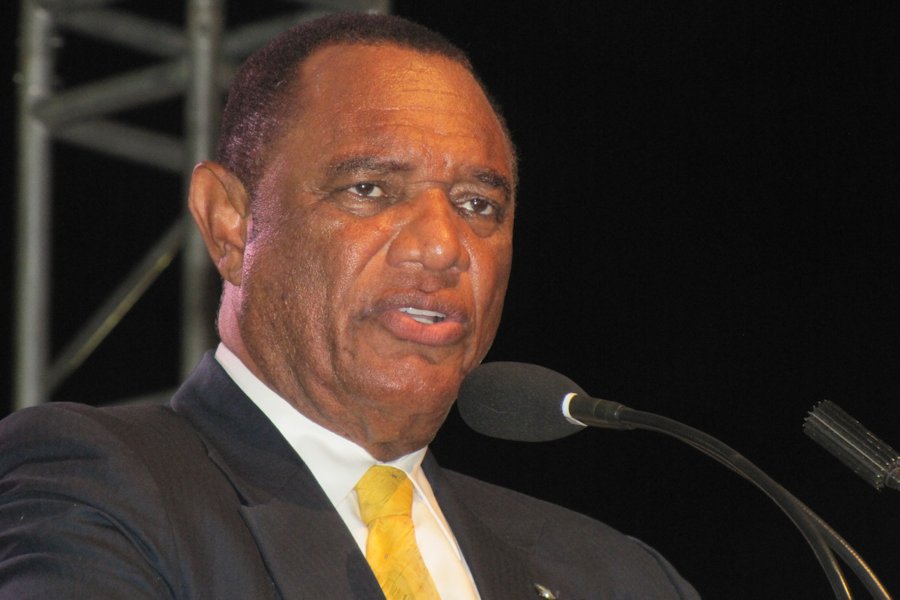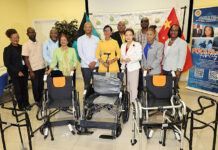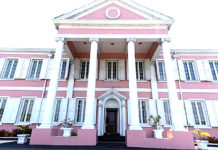
COSTA RICA – Remarks by the Rt. Hon. Perry G. Christie, Prime Minister of the Commonwealth of The Bahamas and Chairman of Caricom at the Opening Ceremony of the CELAC Summit om San Jose on
28th January 2015:
Colleague Excellencies,
Ladies and Gentlemen,
1. It is an honour to join you once again, as part of the Quartet of the Community of Latin American And Caribbean States (CELAC), representing the CARICOM sub-region. I thank you Mr. President for your kind welcome and the excellent arrangements which you have made for us. Indeed I am personally happy to be here today in furtherance of our discussions on the 9th January in Beijing about progress for the people of our countries.
2. I extend sincere greetings to all the Heads of State and Government of Latin America, Central America, and the Caribbean here today as we meet together as one to address matters of current concern in a manner that will cause us to unite truly in a common effort and towards a common goal. I say this referring to the theme of our meeting as an institution: “Building Together.”
3.We have witnessed the results of what is possible through real effort and dialogue. We have an example right at home, with the Republic of Cuba and the United States of America and the effort to renew diplomatic ties. This is an important process and the region looks forward to the normalization of all relations between those two countries and the cessation of the economic embargo against Cuba.
4. We also have a dialogue going on in Havana between opposing forces in the Republic of Colombia. These discussions are all for the greater benefit of the hemisphere. This is all consistent with the aim of CELAC to build together a Zone of Peace.
5. I wish to identify with the themes and aims and objectives of this conference and to address those objectives in the context of the important policy issues of the Caricom region. In particular I wish to speak to the issue of human development, migration and the reduction of poverty. I speak to those issues in the further context of the Post-2015 Development Agenda; Financing for Development; transparency and the need to combat corruption; and the need to deepen regional integration.
6. The real challenge before us is to be able to allocate resources to ensure that the commitments which we make here are seen as real and tangible by all of our peoples.
7. In order to meet our commitments, it is essential that we work on the mechanisms to consult and dialogue with each other as we do with third parties. We have established good relations with the European Union and have stretched our hands to China, Russia, and Turkey all to our mutual benefit but our internal processes should be just as robust and thorough.
8. That continuity can only happen, when we form a group that is cohesive in its preparations and committed to following through once its objects have been defined. We cannot be a good partner without being good to ourselves first. That is the challenge before us.
9. There are existing tools to use to strengthen our co-operation: the Pan American Health Organisation (PAHO), the Economic Commission for Latin America and the Caribbean (ECLAC), the Latin American and Caribbean Group (GRULAC) are a few examples. We have to take full advantage of what they do and can do for us. We must use these and other tools to assist us focusing our attention on the matters at hand – poverty eradication, human development (education and instruction), bridging domestic and international development gaps, vulnerability to external shocks (economic, climate, environmental, and otherwise), fighting against corruption (ethics, values, trust, morality, and accountability). The idea in the end is to achieve the fullest regional integration. I believe we agree that we are on our way, but we also agree that much more needs to be done.
10. I wish to inform you that the CARICOM Member-States have just flown in from Washington, DC, where we discussed energy security matters and the potential transformative impact on, our Caribbean sub-region with our US partner.
11. This will be one of the themes on our agenda for our upcoming CARICOM Inter-sessional Conference of Heads of State and Government.
12. Those discussions were in keeping with the themes raised by my predecessors as CARICOM Chairs at the Summit meetings of CELAC, namely:
· Promoting opportunities for investment in energy, including renewable energy, oil and gas exploration and production, forestry, mining in areas such as gold, diamonds and bauxite, infrastructure development, tourism, airline services, financial services, agriculture and fisheries;
· Pursuing a low carbon strategy and investments in solar power and other renewable energy sources such as geo-thermal, wind and hydro;
· Supporting adaptation and mitigation measures. Energy, water, sanitation, coastal protection, and protection of critical coastal infrastructure are central to the capacity of our countries to adapt to, and mitigate, the effects of climate change. The reality is that a five-foot rise in sea level would eliminate 80 per cent of The Bahamas. Climate change is real for The Bahamas; it is a threat to our very existence; and
· Working together to eliminate GDP per capita as the determinant criterion for denying or allowing us access to concessional financing. CARICOM would like to see greater participation of emerging market economies based on legitimacy, fair representation, responsiveness and flexibility. In island nations and small states, there are disparities and differences in development. So, GDP per capita does not adequately reflect those developmental differences.
13. Happily, the United States and Japan are showing greater flexibility on the issue of GDP per capita as a determinant for concessional financing for development. The United States announced on 26th January that they will no longer block concessional financing to middle income countries in the International Financial Institutions as it relates to energy and climate change financing, based on GDP per capita.
14. The Bahamas will be hosting the Intersessional Meeting of the Heads of State and Government of CARICOM on 26th and 27th February, 2015. During that meeting, it is the intention of The Bahamas to put four-square and centre for our deliberations, a major effort and initiative to further enhance and develop our human capital. Although I was speaking from a CARICOM perspective, I believe that the future of all of our nations and economies would be greatly enhanced by increased attention – through domestic and foreign investments going forward – to the needs of our young people. Education, culture and sports are probably the most accessible modules to target in their regard in our Region.
15. I repeat what I said in Beijing: “if we do not address the issue of our young people and fix those issues, we all do so at our peril. I go further. I think of this as an obligation not just in the regional and hemispheric context but throughout the world. The issue of young people, their joblessness, their sense of despair, threatens the very stability of our countries and our democracies.”
16. Addressing the needs of our young people, will be central to the survivability of our countries and to their sustainability. Often young people are the poorest in our societies, with the least skills. So in working to reduce poverty, we must make special efforts to ensure that young people are nurtured and protected. We ignore this at our peril.
17. Poverty is defined by the United Nations as “the total absence of opportunities, accompanied by high levels of undernourishment, hunger, illiteracy, lack of education, physical and mental ailments, emotional and social instability, unhappiness, sorrow and hopelessness for the future. Poverty is also characterized by a chronic shortage of economic, social and political participation, relegating individuals to exclusion as social beings, preventing access to the benefits of economic and social development and thereby limiting their cultural development.”
18. You can see that we have our job cut out for us.
19. Excellencies, ladies and gentlemen. The Bahamas wishes also to have a focused and candid discussion on migration. Our country suffers from the ill effects of irregular migration. We think that within this forum, the issue ought to be addressed as to how all countries can take steps to curb irregular migration and how we can work together to stop it and to ensure where there is migration it is orderly lawful and safe.
20. CARICOM Heads of State and Government are supportive of Legislative and Institutional Reforms to fight poverty, with an emphasis on transparency, accountability and the fight against corruption.
21. The Heads are aware that corruption, lack of transparency and processes and systems which are devoid of accountability undermine democracy, good governance and the credibility of the Governments. All of us in Caricom are committed to best practices for good governance.
22. In closing, let me extend my thanks and commendation, along with those of my Delegation, to the Government and people of the Republic of Costa Rica for the excellent arrangements here. We must never forget that we are here to work for and on behalf of our people who have reposed a great deal of trust in us and expect much from us. We, who work with and for them, look forward to continue to do good work here and beyond together to our mutual benefit.
Thank you very much indeed.
End







